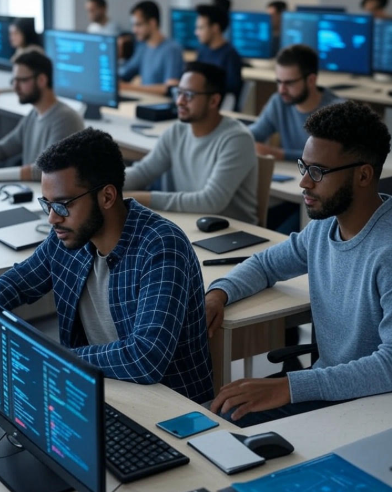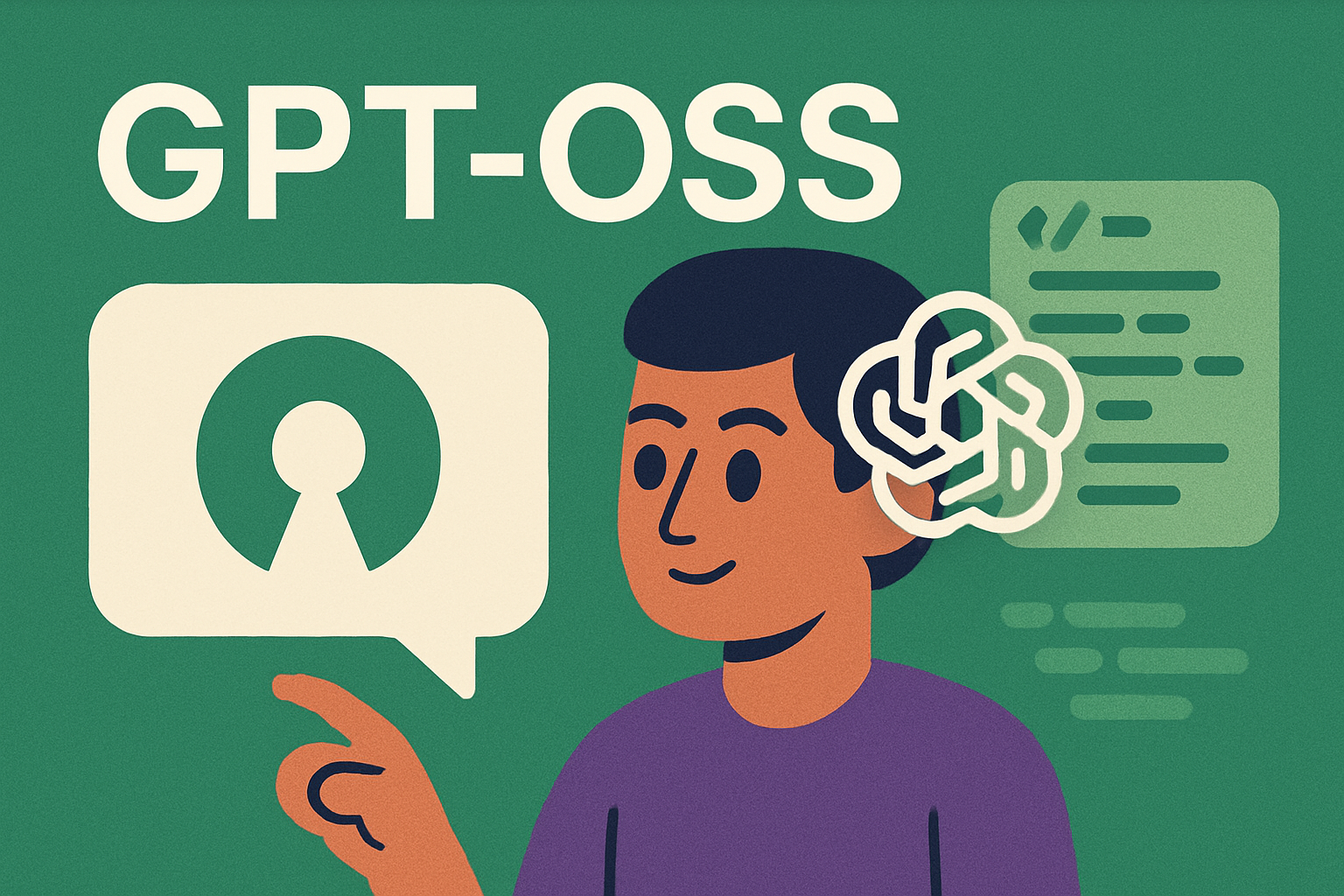Remember when we thought 2025 would bring flying cars and robot butlers? Well, we might not have the flying cars yet, but the robot revolution is happening right now and it’s way more exciting than we imagined.
I’ve been watching the tech world for years, and what’s happening with artificial intelligence right now feels different. It’s not just about chatbots anymore. We’re seeing AI that can learn faster than ever, robots that pick up new skills in minutes instead of months, and search engines that actually understand what you’re looking for before you finish typing.
The New Generation of Lightning-Fast Learning Robots
Here’s something that blew my mind recently: researchers have figured out how to make robots learn new tasks incredibly quickly. We’re talking about machines that can watch a human do something once and then replicate it almost perfectly.
Robotics researchers are no strangers to artificial intelligence—it has for years helped robots detect objects in their path, for example. But a few years ago, roboticists began marveling at the progress being made in large language models. The breakthrough came when scientists realized they could apply the same techniques used to train language models to robot training.
Think about it this way: just like how ChatGPT learned to write by reading millions of books and articles, these new robots are learning to move and manipulate objects by processing massive amounts of movement data. The difference? Instead of generating text, they’re generating perfectly coordinated physical actions.
What makes this even more impressive is how practical it’s becoming. These aren’t lab experiments anymore. Companies are starting to use these fast-learning robots in warehouses, hospitals, and even our homes. Imagine a robot that can watch you fold laundry once and then do it perfectly every time after that. We’re almost there.
AI Search is Getting Scary Good (In a Cool Way)
Remember the frustration of typing a search query and getting millions of irrelevant results? Those days are numbered. Generative AI is upending traditional search engines as we know them—and helping us find stuff on our phones quickly.
The new AI-powered search engines don’t just match keywords anymore. They actually understand context, intention, and even what you might need before you ask for it. I tested this recently when I was looking for information about fixing a squeaky door hinge. Instead of giving me thousands of generic repair guides, the AI search immediately understood I needed quick, practical steps and showed me a simple video tutorial and a list of the exact tools I’d need.
But here’s where it gets really interesting: these search engines are becoming conversational. You can ask follow-up questions, clarify what you meant, or even ask them to explain something differently. It’s like having a research assistant who never gets tired and has access to all human knowledge.
Your Voice Assistant is About to Get a Major Upgrade
Speaking of conversational AI, the voice assistants in our cars and homes are getting a massive upgrade. Xiaomi has announced a next-gen AI voice model optimized for in-car and smart home experiences. The model features faster response times, offline capabilities, and context-aware voice control.
This is huge for a couple of reasons. First, the offline capabilities mean your voice assistant will work even when your internet cuts out. But more importantly, the context-aware part means it will remember what you were talking about and understand references to previous conversations.
Picture this: you’re driving to work and say, “Hey, remind me to call mom about dinner plans.” Later that day, you could just say, “Did I ever make that call?” and your AI assistant would know exactly what you’re referring to. It’s like having a conversation with a friend who has perfect memory.
AI Agents: Your New Digital Employees
Here’s probably the biggest shift happening right now: AI is moving from being a tool you use to being more like a digital colleague that works alongside you. In 2025, AI will evolve from a tool for work and home to an integral part of both. AI-powered agents will do more with greater autonomy and help simplify your life at home and on the job.
I’ve started using AI agents for some of my routine tasks, and it’s genuinely life-changing. These aren’t just chatbots that answer questions. They’re AI systems that can handle entire workflows independently. For example, I have one that monitors my project deadlines, automatically schedules meeting prep time in my calendar, and even drafts initial outlines for articles based on my research notes.
The key difference is autonomy. These AI agents can make decisions, take actions, and even learn your preferences over time. It’s like having a personal assistant who never needs a coffee break and gets better at the job every day.
Healthcare Gets an AI Makeover
The healthcare industry is seeing some of the most exciting AI breakthroughs right now. In healthcare, AI-powered diagnostics are achieving accuracy levels comparable to human doctors, significantly improving early detection of diseases such as cancer.
What’s remarkable isn’t just the accuracy, but the speed. AI systems can now analyze medical images, lab results, and patient histories in seconds, not hours. This means faster diagnoses, earlier treatment, and ultimately better outcomes for patients.
I recently spoke with a radiologist who told me that AI has become her “second pair of eyes.” The system flags potential issues she might have missed during busy days and helps her prioritize the most urgent cases. It’s not replacing doctors – it’s making them superhuman.
The Challenges We Can’t Ignore
Of course, all this progress comes with some serious challenges that we need to talk about honestly. While breakthroughs in 2025 have brought exciting advancements, from generative AI and healthcare innovations to business automation and cybersecurity improvements, challenges remain. Data privacy, job disruptions, and regulatory issues remind us that the path ahead is complex.
The job displacement concern is real, but what I’m seeing in practice is more nuanced than “robots taking jobs.” Yes, some roles are changing dramatically, but new types of jobs are emerging too. Companies need AI trainers, AI ethicists, and people who can work alongside AI systems effectively.
Privacy is another big concern. These AI systems work better when they have access to more personal data, but that creates obvious privacy risks. The companies leading in AI development are having to balance performance with privacy protection, and honestly, some are doing better than others.
What This Means for Regular People
So what does all this mean if you’re not a tech worker or AI researcher? More than you might think.
Your next car will probably understand voice commands better than any current smartphone. The customer service chatbot that used to frustrate you will actually be helpful. Your doctor might catch health issues earlier thanks to AI analysis. And routine tasks at work will become more automated, freeing you up for more creative and strategic thinking.
The trick is staying adaptable. The people who thrive in this AI-enhanced world will be those who learn to work with AI rather than compete against it. That means being curious about new tools, experimenting with AI applications in your field, and staying informed about how these changes might affect your industry.
The Technology Convergence Trend
One thing I find particularly fascinating is how different technologies are starting to merge in unexpected ways. The report also highlights a growing trend of technology convergence. Consider, for example, combinations of AI with biological systems or the role of new materials in advancing clean energy.
We’re seeing AI integrated with biotechnology to develop new medical treatments, combined with materials science to create more efficient solar panels, and merged with robotics to create machines that can adapt to their environment like living creatures.
This convergence is creating possibilities we couldn’t have imagined just a few years ago. It’s not just about making individual technologies better – it’s about creating entirely new capabilities when these technologies work together.
Insights
The pace of change feels overwhelming sometimes, but I’m genuinely optimistic about where we’re headed. The AI breakthroughs happening right now aren’t just technological achievements – they’re tools that could help us solve some of humanity’s biggest challenges.
Climate change, disease, education, accessibility – AI is already making meaningful contributions in all these areas. And we’re still in the early stages of figuring out what’s possible.
The key for all of us is staying informed without getting caught up in hype cycles, being thoughtful about how we integrate these tools into our lives, and remembering that behind all this technology are human problems we’re trying to solve and human values we want to preserve.
The future isn’t happening to us – we’re actively creating it. And based on what I’m seeing in 2025, we’re building something pretty remarkable.



